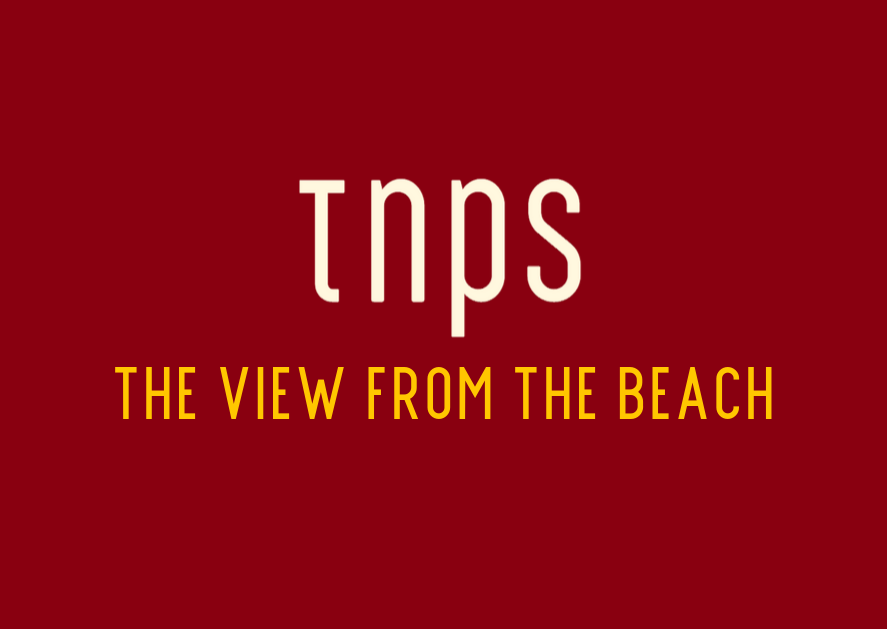The ouster of Jennifer Salke from Amazon MGM Studios is a telling sign of the evolving landscape of Hollywood, where the traditional values of studio filmmaking are increasingly being influenced by the data-driven, profit-oriented priorities of Big Tech.
The recent departure of Jennifer Salke from her position as head of Amazon MGM Studios has sent ripples through the entertainment industry, prompting questions about the future direction of the studio under the tech giant’s ownership.
While Amazon has seen considerable success adapting books into popular series like Reacher and The Lord of the Rings: The Rings of Power, Salke’s ouster, as reported by The Hollywood Reporter, underscores a potential clash between traditional Hollywood studio values and the profit-driven priorities of Big Tech. This shift has significant ramifications for the book publishing industry, which has long benefited from the symbiotic relationship between literature and the silver screen.
The Ascendancy of Big Tech in Hollywood
For decades, Hollywood studios operated under a set of established norms, where creative vision, talent relationships, and a certain degree of artistic risk-taking were integral to their identity. However, the slow but steady takeover of Hollywood by technology giants like Amazon, Apple, and Netflix has introduced a new paradigm.
These companies, while relatively new to the entertainment business, bring with them a distinct set of values rooted in data analysis, algorithmic efficiency, and above all, profitability. Art for art’s sake? In our dreams.
Amazon’s $8.5 billion acquisition of MGM in 2022 signalled its serious intent to become a major player in the film industry, not just as a streaming platform but as a content creator with a significant theatrical presence. The hiring of Jennifer Salke, a seasoned television executive with a background at NBC, was part of this ambition. Her successes in delivering popular streaming series demonstrated an understanding of audience appetites in the digital age. (Something many in publishing still struggle with.)
The Name’s Jassy. Andy Jassy
However, as the Hollywood Reporter article suggests, Amazon CEO Andy Jassy’s focus on streamlining operations and prioritising profit over building large executive teams ultimately led to Salke’s removal. This decision highlights a fundamental difference in approach, that will impact book publishing down the line.
While traditional studio heads often wielded considerable power and influence, the head of Amazon MGM Studios was, in some ways, “middle management,” reporting to Mike Hopkins, who in turn reported to Jassy. This flattened hierarchy and emphasis on efficiency are hallmarks of Big Tech’s operational ethos, a stark contrast to the more hierarchical and personality-driven structures of traditional Hollywood.
The Bond Conundrum: A Clash of Cultures
The Hollywood Reporter article points to the contentious relationship between Salke and Barbara Broccoli and Michael G. Wilson, the custodians of the James Bond franchise, as a significant factor in her departure. Of course, the precise details are unknown, but the overall narrative seems clear enough.
Salke’s apparent inability to foster a productive relationship with the Bond producers, and her obvious failure to understand the mindset of film industry royalty, proved to be a major stumbling block to Broccoli and Wilson agreeing to hand Amazon control of the worlds most coveted movie franchise.
That the deal went through was no doubt conditional on Salke being moved along, but still begs the question what other compromises we are not hearing about. Because we can be certain that price alone was not enough to convince Broccoli and Wilson to relinquish control of the franchise.
Splitting the Bond Universe: Film vs Literary Rights
The rights to James Bond are divided between film and literary interests. Since the 1960s, the film rights have been handled by Eon Productions, a company run by Broccoli and Wilson. Historically, Ian Fleming made an unprecedented deal by selling a controlling stake (51 per cent) in the Bond literary rights to Booker McConnell, which later evolved into what is now known as Ian Fleming Publications. This entity continues to oversee the literary estate, ensuring that the classic Bond books remain under the control of the Fleming estate.
Amazon’s New Creative Control Deal
In the recent Amazon MGM Studios deal, Amazon now has significant influence -not just in developing new films, but more importantly in expanding the franchise into TV series and potentially other visual media. Reports suggest that Amazon intends to use its newfound control to experiment with spin-off TV series featuring Bond characters
For Amazon’s publishing arm, APub, any plans to exploit Bond stories in print would have to be pursued via licensing arrangements with Ian Fleming Publications. Although Amazon now controls the film and TV adaptations, the literary rights remain with the Fleming estate. This means that if new Bond books or spin-off novels are to be published, they must be developed under negotiated agreements with those who hold the rights. Recent ventures – for instance, Vaseem Khan’s spin-off series centred around Q demonstrate how the literary and film franchises continue to interact, with arrangements made on a case-by-case basis.
It was no coincidence that the Q series was commissioned as the Bond movie franchise went up for sale, ensuring that both the legacy and future of 007 are managed with a balance of innovation and respect for what came before.
Ramifications for the Wider Book Publishing Industry
The book publishing industry has long enjoyed a fruitful, albeit sometimes complex, relationship with the film industry. Successful book-to-film adaptations can lead to a surge in book sales, increased author visibility, and the creation of valuable spin-off products.. Amazon’s successes with adaptations of Lee Child’s Jack Reacher and The Lord of the Rings: The Rings of Power, based of course on J.R.R. Tolkien’s work, demonstrate the potential for Big Tech to continue this trend.
However, the profit-first approach exemplified by Salke’s ouster raises concerns for publishing professionals. Will Big Tech’s focus on data and algorithms lead to a preference for adapting only commercially “safe” bets, potentially overlooking more niche or artistically ambitious literary works? The Hollywood Reporter notes that while Salke oversaw popular series, some “higher-concept hits proved more elusive”.
This suggests a potential reluctance to embrace projects that don’t fit neatly into established commercial categories. Sound familiar, anybody?
Furthermore, the streamlining of studio structures and the emphasis on efficiency might impact the creative process of adaptations. Traditional Hollywood often valued the input of experienced producers and directors who understood the nuances of storytelling and character development. A more data-driven approach could potentially prioritise metrics and audience demographics over the artistic integrity of the source material.
It also raises questions about the integrity of the storylines. As we see with the Reacher TV and films, a full length book written for the page can no more bear being crammed into a two hour cinematic event than it can be thinly spread over an eight-episode TV series.
Respecting Traditions and Values
The case of the Bond franchise also serves as a cautionary tale. The deep respect for the source material and the established creative vision of the Broccoli family clashed with Amazon’s desire to potentially commercialise the IP more aggressively.
This highlights the importance of understanding and respecting the traditions and values associated with established literary properties when adapting them for the screen.
And we can draw parallels here with the Jack Reacher films, which did not meet Lee Child’s ultimate approval because Tom Cruise, by putting himself in the lead role, did not respect the source material. In his production role, Cruise had significant creative input and helped shape the final product of the film. His influence extended to aspects of the film’s development, marketing and overall direction, contributing to the transformation of the source material into a cinematic experience that appealed to a broad audience of Tom Cruise fans, but upset many fans of the books (me included!) because the adaptations did not fully respect Lee Child’s original portrayal of the character.
Beyond Amazon: The Broader Impact of Big Tech
It’s important to note that Amazon is not the only Big Tech player with a significant footprint in Hollywood. Apple, with its Apple TV+ streaming service, and Netflix have also disrupted the traditional studio model. These companies, like Amazon, bring a data-centric approach to content creation and distribution, often prioritising subscriber growth and engagement metrics over traditional box office success.
This shift has both opportunities and challenges for the book publishing industry. The increased demand for content from streaming platforms could lead to more adaptation opportunities for books across various genres. However, the focus on creating content that drives subscriptions might also mean that only books with broad mainstream appeal are considered viable for adaptation.
Publishing professionals should pay close attention to the types of stories that Big Tech companies are choosing to adapt, the creative control afforded to filmmakers, and the overall approach to intellectual property. Understanding the priorities and values of these new Hollywood players will be crucial for navigating this evolving landscape and ensuring that the rich and diverse world of literature continues to find its way to the screen in meaningful and impactful ways.
The successes of book-to-film adaptations remain a powerful engine for the publishing industry, and fostering a collaborative and respectful relationship with Big Tech’s Hollywood ambitions will be essential for ensuring this continues in the years to come.
This post first appeared in the TNPS LinkedIn newsletter.





